Covid: Cardiff city centre working '50% lower' than pre-pandemic
- Published
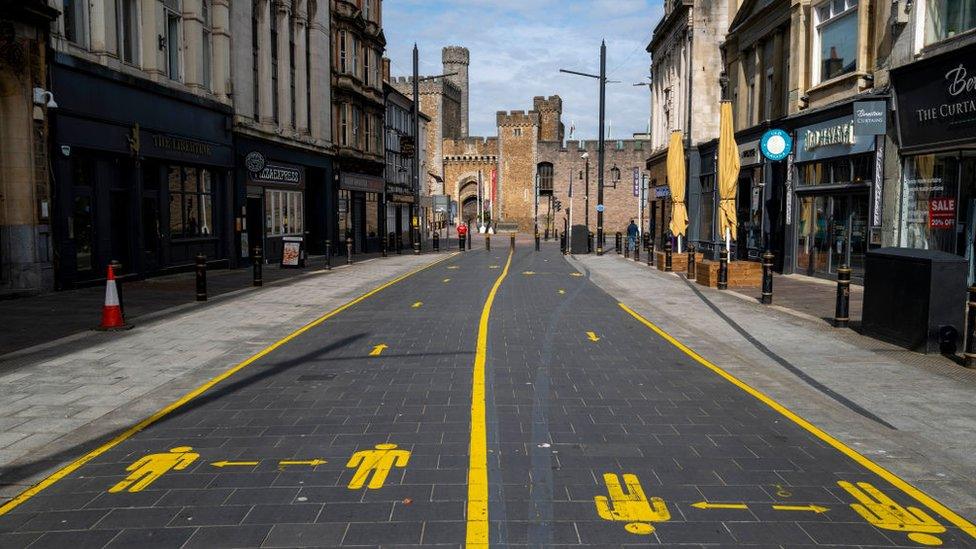
Fewer people have been working and spending money in Cardiff during the pandemic, research suggests
The number of people working in Cardiff city centre is 50% lower than before the pandemic, according to research.
A study by the The Centre for Economics and Business Research (CEBR), external found the city had a lower share of workers back in the office than four other major UK cities.
It found some £400m less had been spent in the city centre since March 2020.
The Welsh government said it recognised the "big impact" of Covid and was working closely with sectors affected.
A review conducted for Cardiff council found the shift to home-working has had "a radical impact" for cities, but added many suggestions about the longer-term had been "premature and shallow".
The CEBR research concluded spending in shops and food and drink establishments would be about £6.3m less per month than at the start of the pandemic, if workers in Cardiff worked from offices for an average of two days per week.
However, the financial impact on Cardiff was found to be lower than London, Manchester, Glasgow and Newcastle, the other cities featured in the study.
Zipporah, a Cardiff-based IT company which provides resource management software, decided to move from a large site on an industrial unit to a smaller office space last year after finding home working was more useful to its employees.
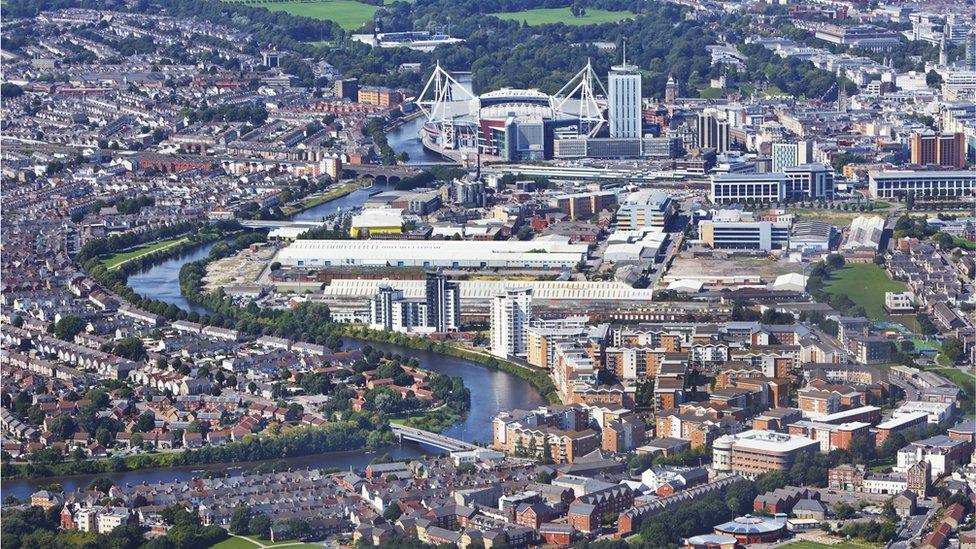
Some businesses, such as Zipporah, are deciding against moving to the city centre
Scott Burton, Zipporah's technical director, said: "We found it was improving things to make a better environment for the team.
"In about August we started looking for new premises. We wanted to get a smaller space."
Mr Burton said the company initially looked to the city centre, so the employees could be closer to shops and hospitality, but this "wasn't going to stack up financially".
Instead, the company moved to a small office in St Mellons, a suburb of Cardiff, and now has an office which can host about 15 of its 20 staff, but typically sees about five people working there each day.

Ziporrah technical director Scott Burton says moving to a suburb of Cardiff had worked well for the company and its staff
Although the staff are still a reasonable distance from the city centre, he said the number of shops and food options close to the new work site has improved things for the workers and the local economy.
Mr Burton said: "There's literally nothing around [the previous office] whereas now there's a coffee van, there's a lot not far away.
"At lunchtime you would spend 20 minutes trying to get to the nearest Tesco so there was never any time to actually do anything.
"We wanted to move to the city centre to get more amenities around us but it wasn't going to stack up financially, but you come to somewhere like [St Mellons] and it's got all sorts around it. Now we're a solid line of business to the coffee van."

'Cardiff's environment has completely changed'
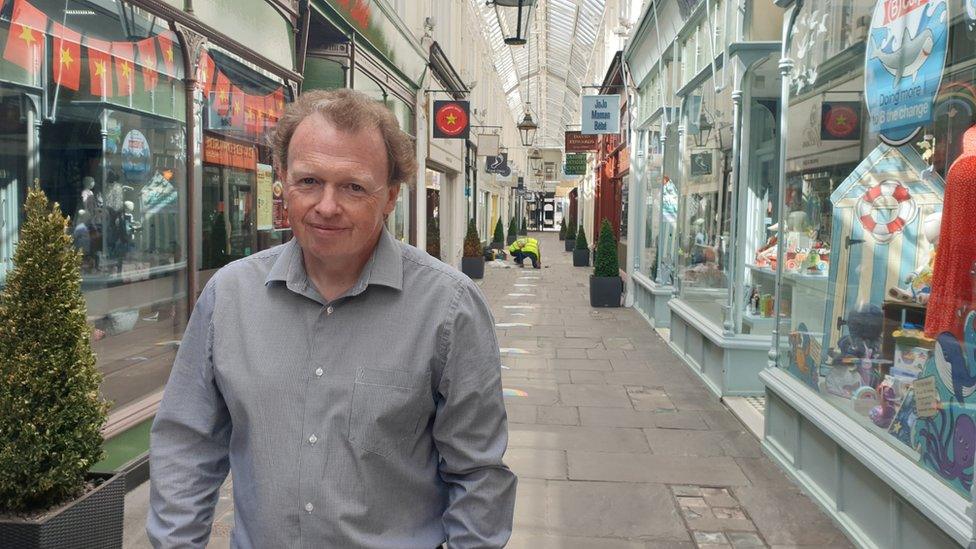
Rory Fleming manages two of Cardiff's historic shopping arcades
Rory Fleming, manager of the Morgan Quarter arcades in the city centre, says the environment in Cardiff has "completely changed" since 2019, making it hard to compare to the present day.
"In 2019, offices were fully staffed, people had a lot of confidence using public transport to come in. Whereas in 2021, up until last month, hospitality wasn't allowed to open indoors," he said.
Mr Fleming said that while trading figures were down from 2019, since 12 April to last week, there was a "steady growth" in figures.
"It's down on 2019, but if we can maintain that upward trend from now to the end of the year, that will be a success for us," he said.
"People will no doubt be anxious about coming back to the city centre and all we can do is to create an environment to make people feel safe."
He also said their creative quarter, made up of 35 office spaces above St Mary Street, had increased to 80% occupancy "in some shape or form," with more people coming in to work for part of the week.
Mr Fleming added there is growing confidence of office workers returning because "people need some human interaction".

Creating opportunities
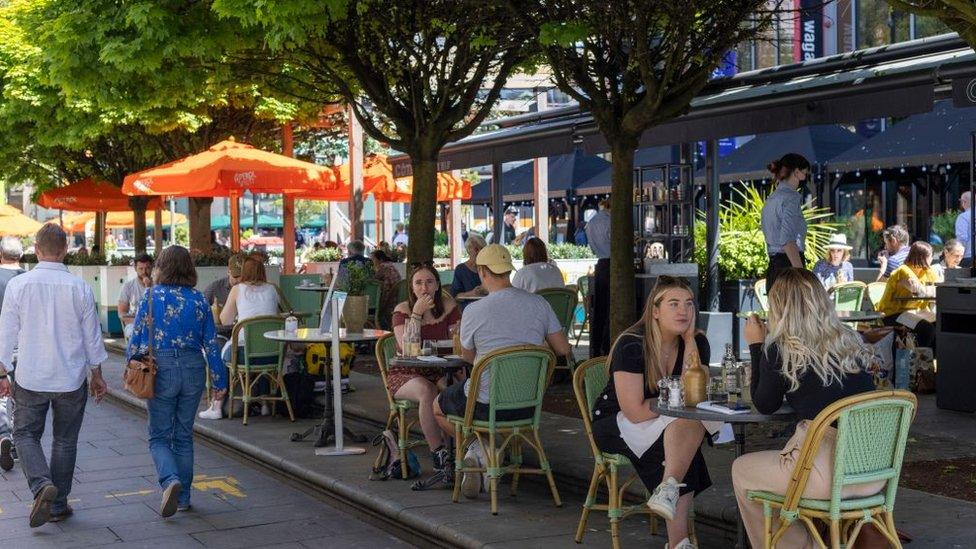
Cardiff council pointed to the issues and steps identified in its review of how to take the city forward, external after the pandemic.
Its report said it was not clear how radical the impact of the shift to home-working would be, nor whether widespread vaccination would restore office occupancy in city centres.
It said the shift to home working had been "substantive" and predicted much of it would "stick", but this would create opportunities, such as attracting companies and workers who might previously have worked all week in larger cities, including London.
'Big impact'
A Welsh government spokesperson said: "We fully recognise the Covid pandemic has had a big impact on high streets across Wales, which is why we are working closely with the retail and hospitality sectors to respond to the challenges they face in the short, medium and long term.
"Since the beginning of the pandemic, we've committed more than £2.5bn to businesses across Wales in addition to our business as usual support through Business Wales.
"In addition, our Transforming Towns programme is providing nearly £110m to help support the economic and social recovery of our town and city centres.
"We also have ambitious plans to help people work smart and remotely in Wales. We are trialling a series of community-based remote working hubs, encouraging people to work closer to home and driving footfall back into town centres."
- Published5 July 2020
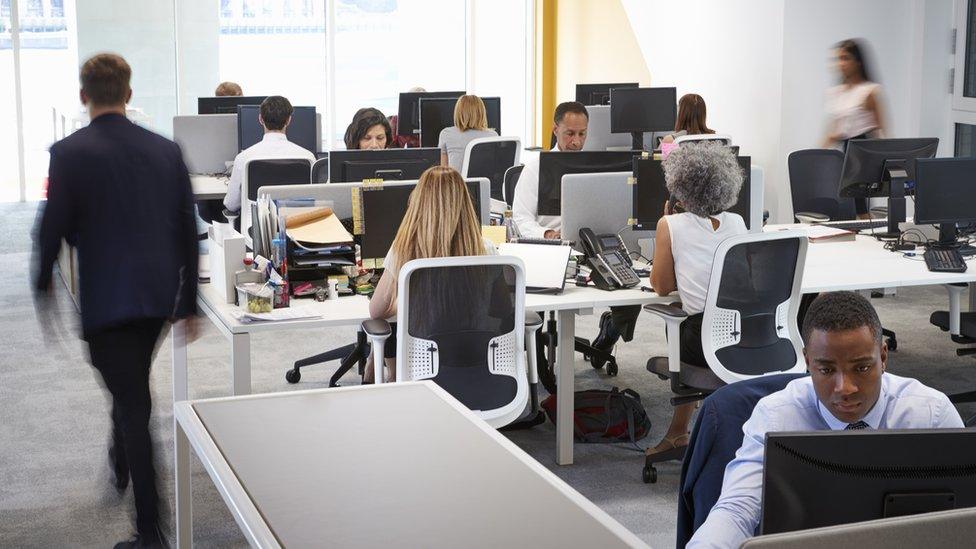
- Published5 June 2021
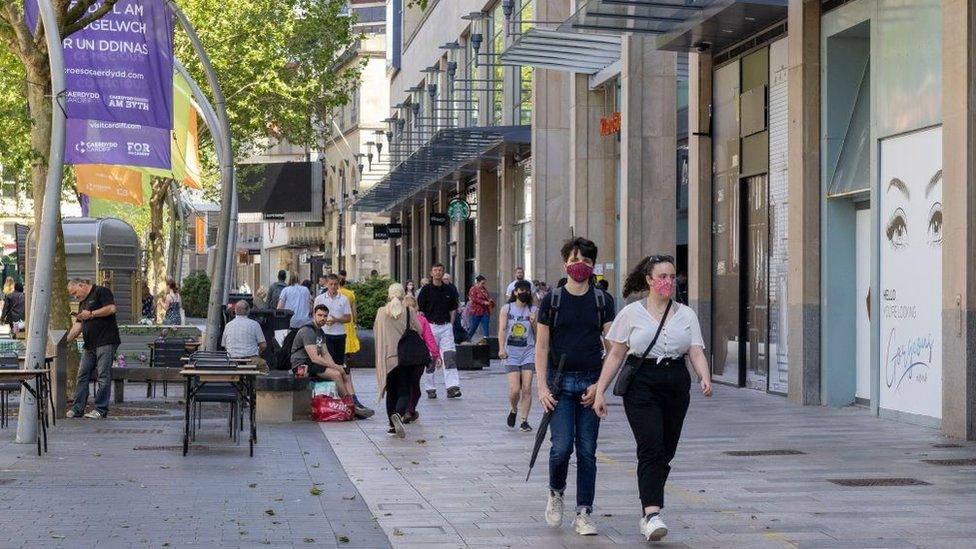
- Published6 April 2021
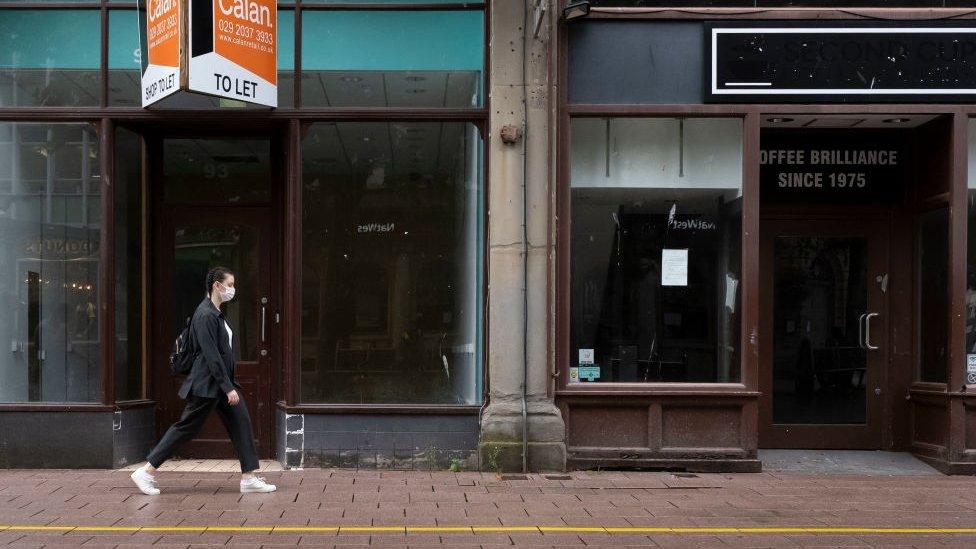
- Published23 February 2021
